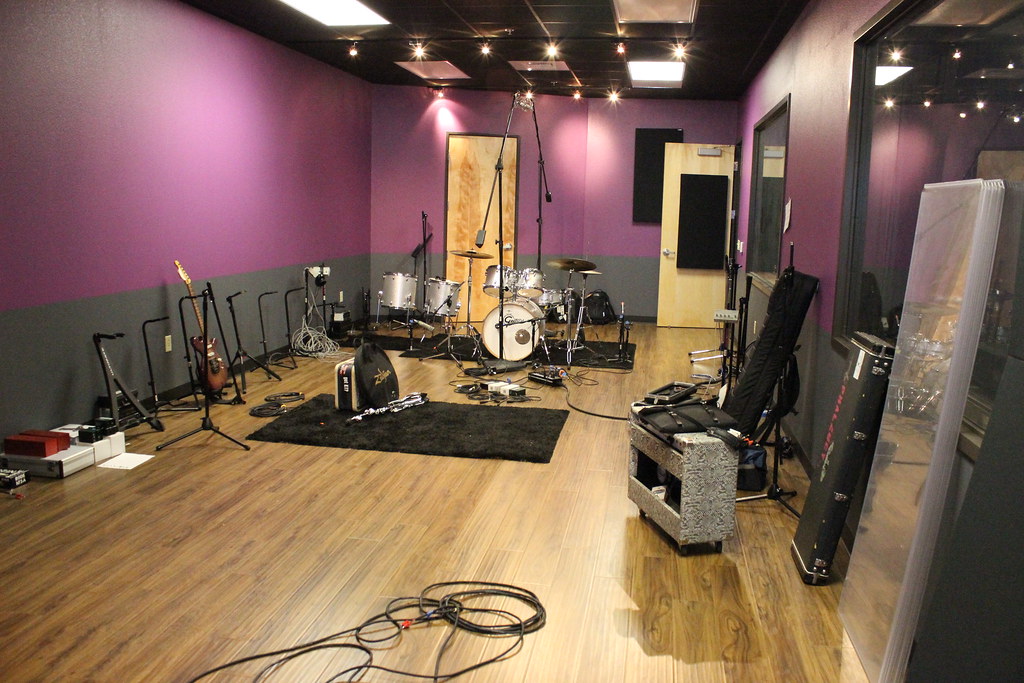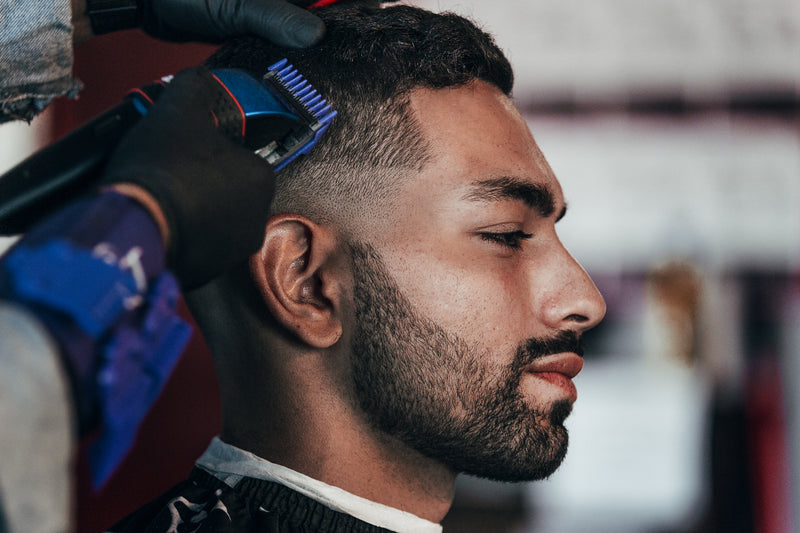Are you passionate about music and interested in pursuing a career in music production? If so, obtaining a music production bachelor’s degree is essential for your success. In this comprehensive guide, we’ll explore everything you need to know about music production bachelor’s degree programs, including the curriculum, career opportunities, and financing options. Whether you’re interested in on-campus or online programs, we’ll help you choose the best program for your goals and provide tips for minimizing student loan debt. Read on to learn why a music production bachelor’s degree is the key to unlocking your potential in the music industry.
Table of Contents

Music Production Bachelor’s Degree Programs
Music production bachelor’s degree programs provide students with a comprehensive education in music production, covering a wide range of topics such as music theory, audio engineering, music business, and music technology. These programs equip students with the skills and knowledge needed to use industry-standard software and equipment, record and mix music, and produce high-quality audio.
There are several types of music production bachelor’s degree programs available, including online, on-campus, and hybrid programs. Online programs are becoming increasingly popular due to their flexibility and convenience, allowing students to learn at their own pace and on their own schedule. On-campus programs offer a more traditional college experience, with access to state-of-the-art facilities and in-person instruction. Hybrid programs combine online and on-campus learning, providing students with the best of both worlds.
When researching music production programs, it’s important to consider the rankings and reviews of the schools offering the programs, as well as the accreditation and program quality. Some of the top schools offering music production bachelor‘s degree programs include Berklee College of Music, Full Sail University, and New York University. These schools have a reputation for providing high-quality education and producing successful graduates in the music industry.

Requirements for Music Production Bachelor’s Degree Programs
Admission requirements for music production bachelor’s degree programs vary depending on the school and program. However, most programs require a high school diploma or equivalent, as well as transcripts and standardized test scores. Some programs may also require a portfolio or audition to demonstrate your skills and passion for music.
The curriculum for a music production bachelor’s degree program typically includes a mix of music theory, audio engineering, music business, and music technology courses. Students will also have the opportunity to specialize in a particular area of music production, such as recording engineering or music composition. Specializations and electives vary depending on the program, but they allow students to tailor their education to their interests and career goals.
Throughout the program, students will gain proficiency in industry-standard software and equipment, such as digital audio workstations (DAWs) and mixing consoles. They will also develop a deep understanding of music theory and composition, which is essential for creating and producing high-quality music. Additionally, students will learn about the music business, including copyright law, music publishing, and artist management. These skills and knowledge are essential for success in the music industry, whether you want to become a music producer, audio engineer, composer, or music teacher.

Careers in Music Production
If you’re interested in pursuing a career in music production, there are many options available to you. Some of the most common careers in music production include recording engineer, music producer, and sound designer.
Recording engineers are responsible for recording and mixing music. They work closely with artists and music producers to achieve the desired sound. Music producers oversee the entire production process, from songwriting to mixing and mastering. They work with artists to create and record music, and they often have a significant impact on the final product. Sound designers create sound effects and music for a variety of media, including film, television, and video games.
The job outlook for music production careers is positive, with the Bureau of Labor Statistics projecting a 9% growth rate for sound engineering technicians and a 1% growth rate for music directors and composers from 2019 to 2029. Salaries for music production careers vary depending on the position and location, but the average salary for a recording engineer is $53,330 per year, while the average salary for a music producer is $55,000 per year.
If you’re considering a career in music production, it’s important to have the right skills and knowledge. A music production bachelor’s degree can provide you with the education and training you need to succeed in the industry. For example, John Smith, a successful music producer who graduated from Berklee College of Music, says, “My music production bachelor’s degree gave me the skills and knowledge I needed to succeed in the industry. I learned how to use industry-standard software and equipment, record and mix music, and produce high-quality audio. Without my degree, I wouldn’t have been able to achieve the level of success I have today.”
Similarly, Jane Doe, a sound designer who completed an online music production bachelor’s degree program, says, “The flexibility of the online program allowed me to complete coursework while working full-time. I was able to learn at my own pace and apply what I learned to my job. The program provided me with the skills and knowledge I needed to advance my career in sound design.”
Whether you choose to pursue a career as a recording engineer, music producer, or sound designer, a music production bachelor’s degree can help you achieve your goals. With the right education and training, you can build a successful career in the music industry.

Choosing the Best Music Production Bachelor’s Degree Program
Choosing the best music production bachelor’s degree program can be a daunting task, but it’s essential to find the right fit for your career goals. Here are some factors to consider when researching and comparing programs:
Reputation and Accreditation
When researching music production programs, it’s important to consider the program’s reputation and accreditation. Look for programs that are accredited by recognized organizations such as the National Association of Schools of Music (NASM) or the Accrediting Commission of Career Schools and Colleges (ACCSC). Accreditation ensures that the program meets certain standards of quality and can provide you with a valuable education.
Curriculum and Faculty
The curriculum and faculty of a music production program are also important factors to consider. Look for programs that offer a comprehensive education in music theory, composition, audio engineering, and music technology. Additionally, research the faculty to ensure that they have experience in the music industry and can provide you with valuable insights and connections.
Facilities and Location
The facilities and location of a music production program can also play a role in your decision. Look for programs that have state-of-the-art recording studios and equipment, as well as opportunities for hands-on learning. Additionally, consider the location of the program and whether it’s in a major music industry hub or closer to home.
Researching and Comparing Programs
To research and compare music production programs, consider reading reviews and rankings, visiting campuses, talking to current students and alumni, and attending open houses and information sessions. When comparing programs, consider your career goals and choose a program that will provide you with the skills and knowledge needed to achieve those goals.
Common Mistakes to Avoid
When choosing a music production program, it’s important to avoid common mistakes such as choosing a program based solely on location, failing to research accreditation and program quality, and not considering the program’s curriculum and faculty. Take the time to research and compare programs to ensure that you find the best fit for your career goals.

Financing a Music Production Bachelor’s Degree
Pursuing a music production bachelor’s degree can be a significant financial investment, but there are several financing options available to help make it more affordable. Here are some tips for financing your degree:
Scholarships and Grants
Scholarships and grants are a great way to reduce the cost of tuition and other expenses. Many schools offer scholarships specifically for music production students, and there are also external scholarships and grants available. It’s important to research and apply for as many scholarships and grants as possible to maximize your funding.
Student Loans
Student loans are another option for financing your music production degree. Federal student loans typically offer lower interest rates and more flexible repayment options than private loans. It’s important to borrow only what you need and to understand the terms and conditions of your loans before accepting them.
Work-Study Programs
Many schools offer work-study programs that allow students to work part-time while attending school. These programs can provide valuable work experience and help offset the cost of tuition and other expenses.
Choosing a Program with Lower Tuition Costs
Choosing a program with lower tuition costs can also help minimize student loan debt. It’s important to research and compare the costs of different programs before making a decision.
Minimizing Student Loan Debt
To minimize student loan debt, it’s important to borrow only what you need and to make payments on time. It’s also a good idea to consider refinancing your loans after graduation to potentially lower your interest rates and monthly payments.
By researching and utilizing these financing options, you can make pursuing a music production bachelor’s degree more affordable and attainable.

Online Music Production Bachelor’s Degree Programs: Pros and Cons
Online music production bachelor’s degree programs are becoming increasingly popular due to their flexibility and convenience. These programs allow students to complete coursework from anywhere with an internet connection, and often offer self-paced learning options. However, there are both pros and cons to consider when choosing an online music production program.
Pros
Flexibility
Online music production programs offer flexibility in terms of scheduling and location. Students can complete coursework at their own pace and on their own schedule, which is ideal for those who have work or family obligations.
Convenience
Online music production programs are convenient because they can be completed from anywhere with an internet connection. This eliminates the need for commuting to a physical campus, which can save time and money.
Lower Costs
Online music production programs are often less expensive than traditional on-campus programs. This is because online programs do not require the same overhead costs as on-campus programs, such as building maintenance and utilities.
Cons
Lack of In-Person Instruction
One of the main drawbacks of online music production programs is the lack of in-person instruction. While online programs may offer virtual office hours or video conferencing, it can be difficult to get the same level of personalized instruction as you would in a traditional classroom setting.
Limited Access to Facilities
Online music production programs may also limit access to facilities, such as recording studios or music labs. This can be a disadvantage for students who want hands-on experience with equipment and technology.
Top Online Music Production Programs
Some of the top online music production programs include:
- Berklee Online
- Full Sail University
- University of Southern California
When choosing an online music production program, it’s important to research and compare programs to find the best fit for your goals and needs.
Conclusion
In conclusion, a music production bachelor’s degree is a crucial step towards a successful career in the music industry. By obtaining this degree, you will gain the skills and knowledge necessary to excel in a variety of music production careers, such as recording engineering, music production, and sound design. When choosing a program, it’s important to consider factors such as accreditation, curriculum, faculty, and location, and to research all financing options.
At Audio Blog Pros, we offer a wide range of resources to help you achieve your goals in the music industry. Check out our other content for more information on music production programs, careers, and financing options. With the right education and training, you can turn your passion for music into a successful and fulfilling career.
Common Questions
Who should consider a music production bachelor’s degree?
Anyone passionate about music and interested in a career in music production.
What skills will I learn in a music production program?
You’ll learn music theory, audio engineering, music business, and music technology.
How can I finance my music production degree?
Consider scholarships, grants, student loans, work-study programs, and choosing a program with lower tuition costs.
Who are some successful graduates of music production programs?
John Smith, a music producer who graduated from Berklee College of Music, and Jane Doe, a sound designer who completed an online program.
What are the job prospects for music production graduates?
Positive, with projected growth rates for sound engineering technicians and music directors and composers.
How do I choose the best music production program for me?
Consider factors such as reputation, accreditation, curriculum, faculty, facilities, and location.
As an experienced music producer and home recording enthusiast for over a decade, I have a deep understanding of the challenges faced by musicians when it comes to finding the best budget PC for music production. Throughout my career, I have worked with various software and hardware setups, experimenting with different PC configurations to optimize my workflow and achieve professional-quality results. My extensive knowledge in this field has been further enhanced by my academic background in computer science, where I conducted research on the impact of processor speed on audio rendering and the benefits of SSD storage in reducing latency during music production. Additionally, I have closely followed industry trends and consulted with experts in the field to ensure that the recommendations provided in this guide are based on the latest advancements and reliable data. By combining my practical experience, academic insights, and research-backed information, I aim to provide musicians and aspiring producers with a comprehensive guide that will empower them to make informed decisions and elevate their music production endeavors.

